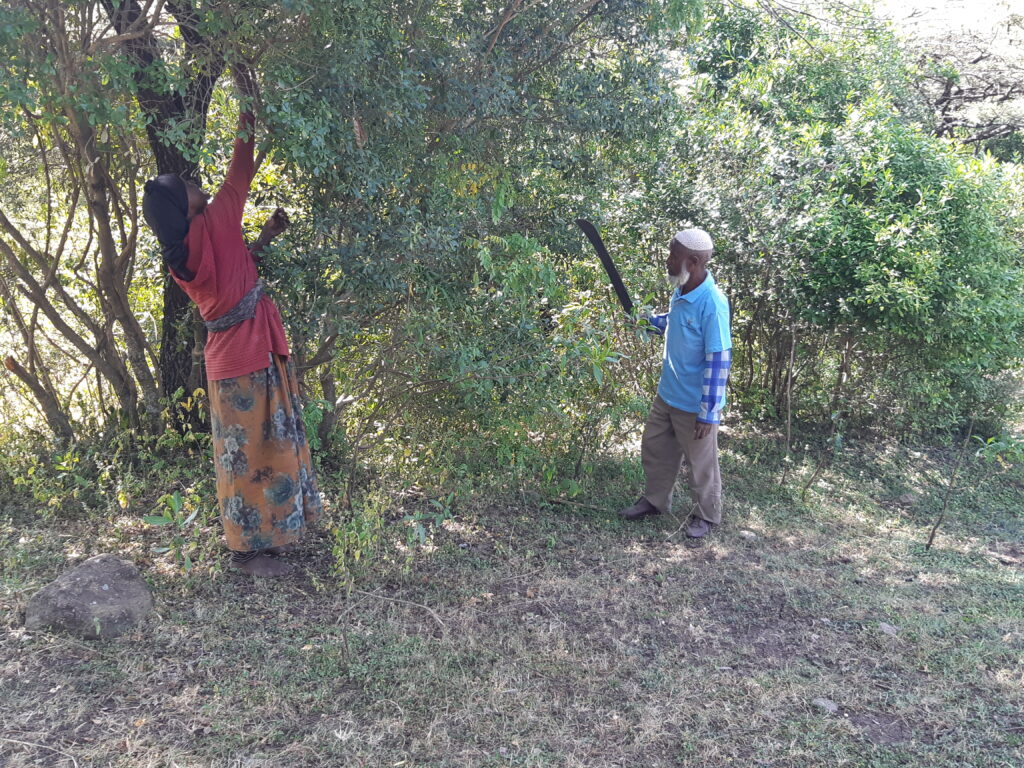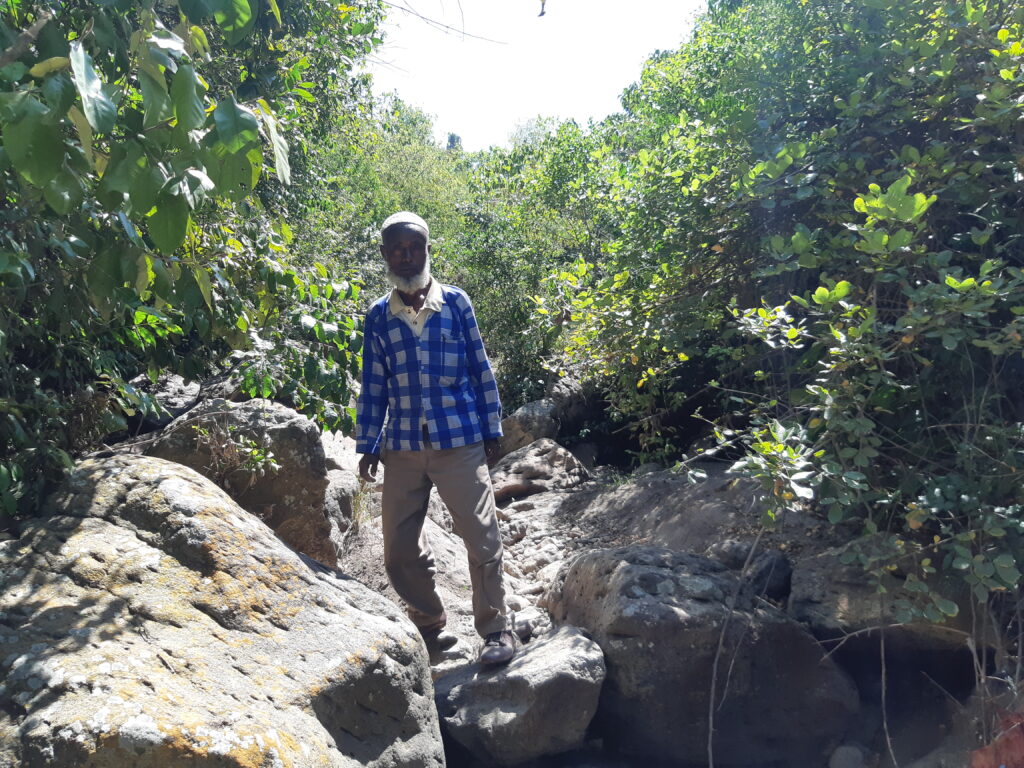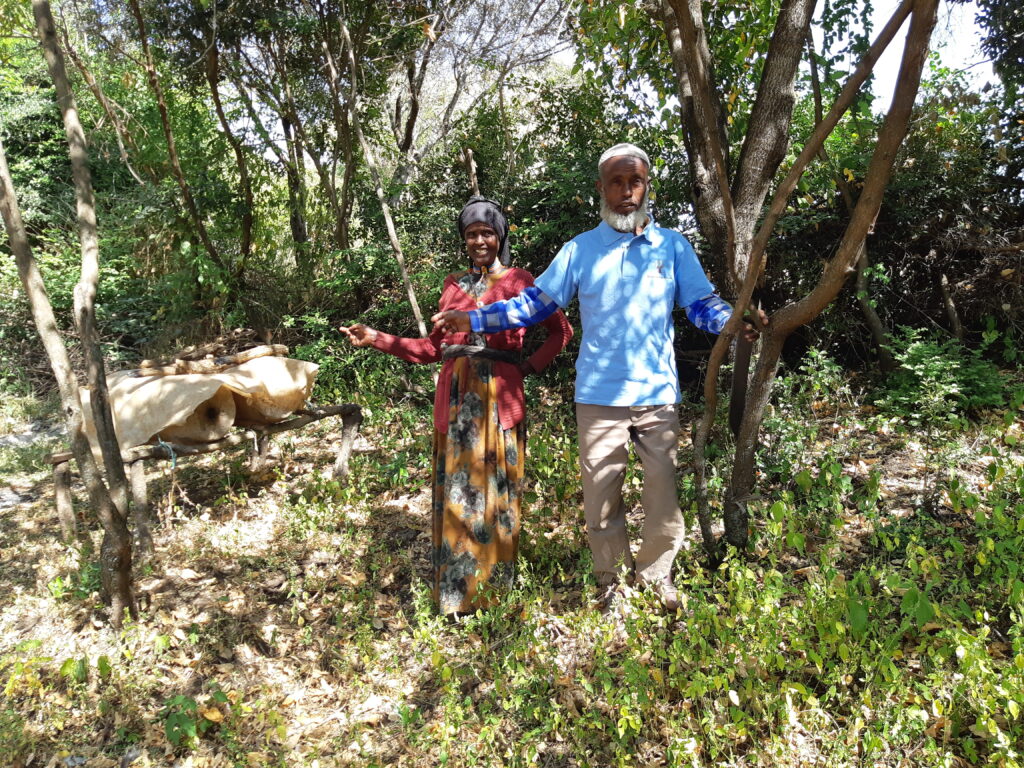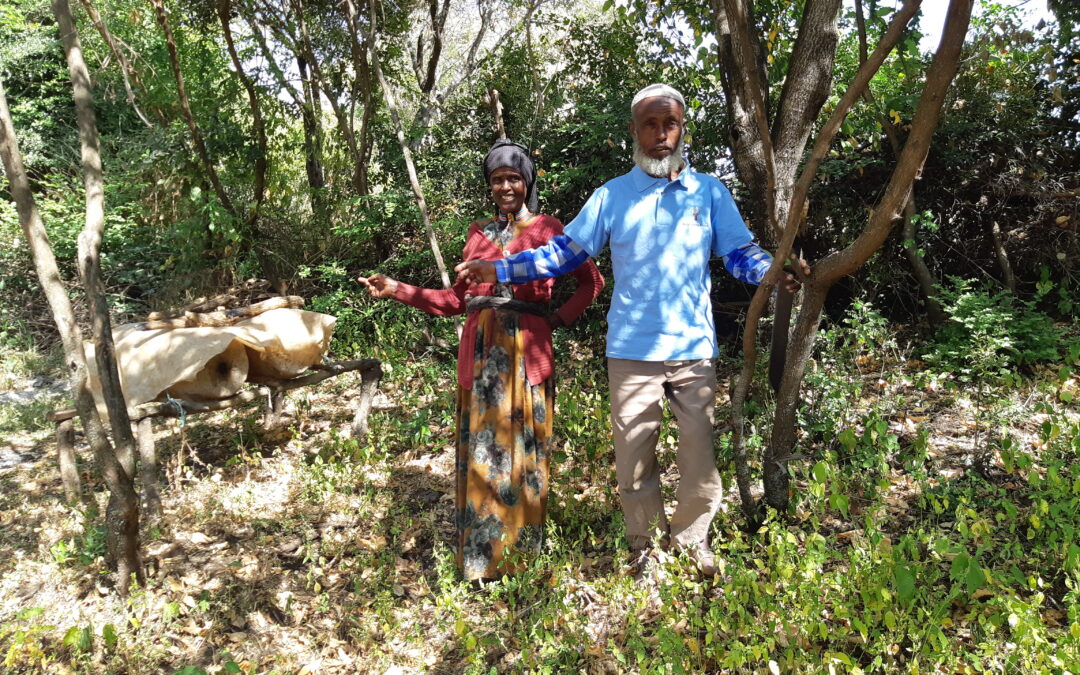By Habtamu Regasa
Sheki Jamal is a 55-year-old farmer, a father of nine-seven sons and two daughters-who lives in Sinbixe village of Jeju district, Oromia Region state of Ethiopia. When Jamal was young, most of the land in his village was covered with natural forests consisting of different indigenous plants which was home to many wildlife. Over the years, the existing natural forest was cleared for firewood, construction, agricultural land expansion, and livestock grazing. Consequently, severe soil and water erosion emerged, wildlife migrated, water sources lost, and the discharging capacity decreased resulting in a decline in farmland productivity.
Sheki Jamal realized that the productivity decline was associated with deforestation. He, therefore, decided to restore the degraded forestland through tree planting and implementing soil and water conservation activities around his home.
World Vision Ethiopia’s Regreening Africa project saw the opportunity and targeted Sheki Jamal as one of the volunteer farmers in Jeju District and conducted Training of Trainers on fruit and tree management . Moreover, World Vision allowed him to get an experience-sharing visit to Wolayita-sodo and Konso districts with other selected farmers to replicate good practices of how to undertake Farmer Managed Natural Regeneration (FMNR), agroforestry practices, and fruit trees.

Jamal and his wife Hawa in their farm, pruning a tree. Photo: World Vision Ethiopia
The peer-to-peer experience-sharing visit enabled him to get a practical experience of tree management and its uses and easily replicable interventions of the project which helped him in the restoration of the area around his home. Jamal began his restoration journey by fencing the degraded forest area on 2.4 hectares of land and enclosing it from animal and human interferences.
From the onset, the development agent and Regreening Africa project officers have supported Jamal through training and advice to successfully carry out his work. Besides the trees’ natural regeneration, he also planted tree seedlings of Juniperus procera locally called ‘Hindhesa’ as an enrichment plantation and direct sowing of Dodonaea Angustifolia seed to boost the restoration process. Jemal and his family have been practicing land preparation, weeding, and fencing of the site followed by tree and shrub thinning and pruning. The site is now well restored and covered with grass, shrubs, and tree vegetation of different species.

Jamal walks through the landscapes that have been restored. Photo: World Vision Ethiopia.
Jamal’s wife’s contribution to the successful recovery of the site has been immense, Hawa Abdulkadir, a 45-year-old woman takes the responsibility to protect the site by regularly checking it, whether or not her husband is around.
Hawa said, “I am using the forest as a source of firewood by thinning and pruning its dead branches,” She also added that her family enjoys the shades of the trees and the beauty of nature.

Jamal and his wife Hawa point at their beehives in their FMNR farm. Photo: World Vision Ethiopia.
Jamal and Hawa are also practicing apiculture by hanging 3 traditional hives in their restored forest. Currently, the two hives have bee colonies, and they are harvesting about 3 kg of honey per hive every reaping season for their family’s consumption. As a result of Jemal and his family’s conservation effort, new water sources have been created, existing water sources’ discharging capacity enhanced, farmland productivity increased, and the microclimate is ameliorated.
This story was produced with the financial support of the European Union. Its contents are the sole responsibility of Regreening Africa and do not necessarily reflect the views of the European Union.

